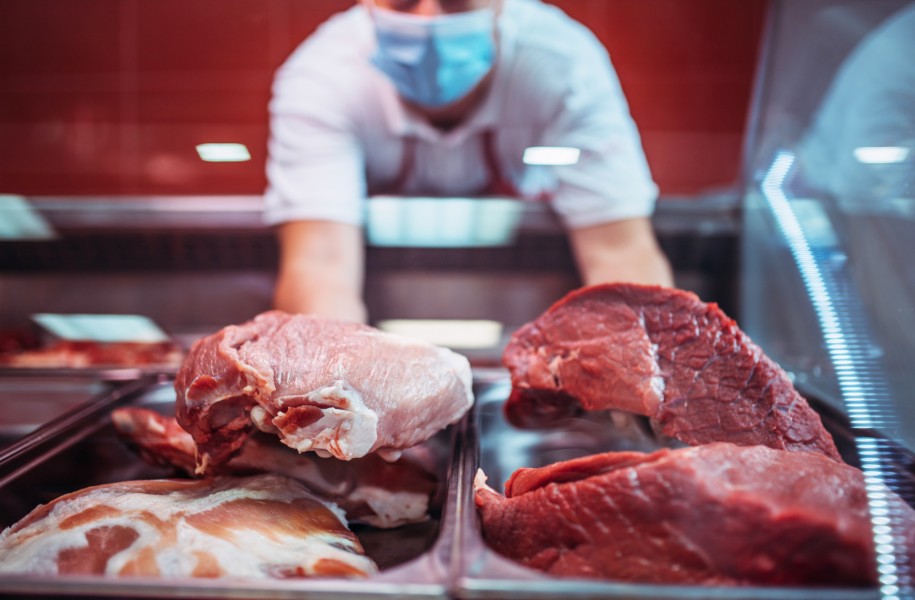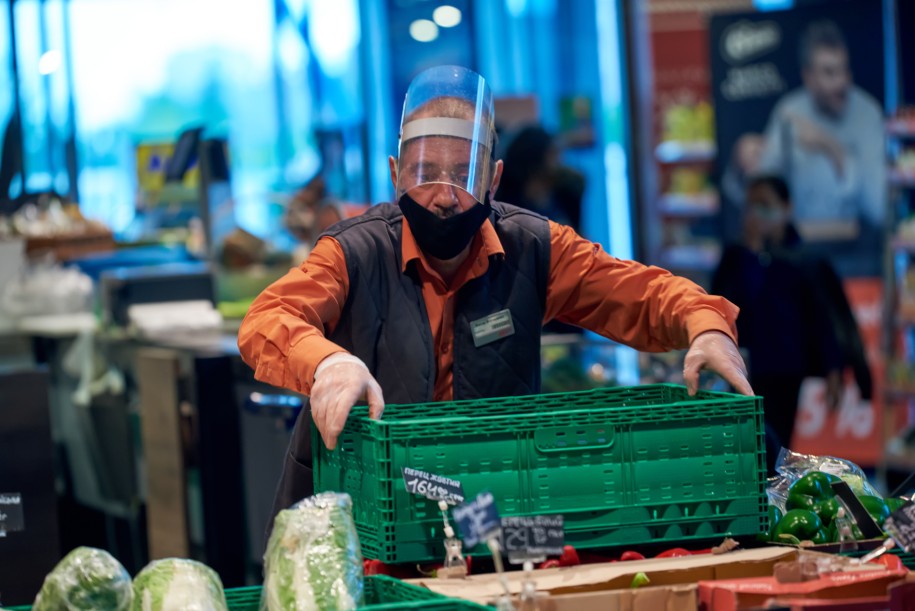Local Farmers’ Markets, Not as Safe as You Think
By Suzanne Osborne
Consumers are increasingly concerned with where their food is produced. Fear of industrial farming, a desire to support the local economy, and environmental considerations have fuelled a resurgence in the direct-to-consumer sale of food products. As of 2020, the USDA’s National Farmers’ Market Directory includes 8,756 registered farmers’ markets.
The Farmers’ Market: Perceptions
Consumers, vendors, and farmers’ market managers have an overwhelmingly positive perception of the food sold at farmers’ markets. They believe the food is of higher quality, fresher, more traceable, and safer than food purchased at retail. Only 2-6% of consumers expressed any concern about bacterial contamination.
The Farmers’ Market: Reality
Numerous food borne outbreaks have already been traced back to farmers’ markets. Research on farmers’ market produce finds that bacterial counts are either similar to, or higher than retail food. A study in Pennsylvania found a higher prevalence of E. coli and Listeria on leafy green produce at farmers’ markets compared to retail. Whole chickens purchased at farmers’ market had higher counts of Salmonella and Campylobacter (28%) compared to those purchased at supermarkets (8%). Our perception that farmers’ market products are safer than retail does not match reality: direct-to-consumer food sales pose safety risks to consumers.
Research on farmers market produce finds that bacterial counts are either similar to, or higher than retail food
Food Safety Starts on the Farm
Markets tend to host vendors from small farms. Small farms may lack the financial resources to participate in training, conduct audits, or implement food safety practices. A study from the 2020 edition of the journal Foods has shown that less than half of vendors had formal food safety training. Many jurisdictions have limited regulations for small farms. For example, in the US, market vendors with annual produce sales < $25,000 are exempt from the safety requirements outlined in the Food Safety Modernization Act (FSMA). These conditions translate into increased risk to consumers.
Farmers’ Market Food Safety Gaps
Several food safety concerns have been consistently witnessed at farmers’ markets. These include poor hand washing, a lack of oversight, and the absence of refrigeration.
Hand washing: The CDC recognizes that poor personal hygiene and sanitation by food handlers is a critical risk factor for food borne disease. Surveys of farmers’ markets reveal that only half had hand washing stations at the market. Observations of market vendors showed a staggering 96% did not wash their hands. 37% of vendors were not required to wear gloves while handling ready-to-eat foods. Vendors self-identified that the most significant barrier to food safety at farmers’ markets was a lack of proper hand washing facilities and equipment.
Oversight: The second largest food safety barrier was a lack of specific guidelines for farmers’ markets. Vendors felt current safety guidelines are general and/or not applicable. Of market managers surveyed, many had a poor understanding of regulations and limited knowledge of food safety. 40% of managers had no food safety standards in place for the market. Vendors were rarely asked about food safety standards on their farm. Only 25% of managers offered sanitation training to vendors, of which only half of the vendors thought the material provided was of high-quality and easy to understand.
Refrigeration: Farmer’s markets are often held outdoors during peak summer months. As such, market produce often sits in the hot sun for extended periods. It was reported that 35% of vendors failed to cool their produce during its transport to market. Most don’t use electrically controlled refrigeration equipment. Over half used coolers; some without ice. There is a general lack of refrigeration infrastructure and equipment at farmer’s markets.
Improving Food Safety at the Farmers’ Market
There is a pressing need to create high-quality food safety guidelines specific to farmers’ markets. Although only 30% of vendors and managers support regulating farmers’ markets, some states including Pennsylvania, Maryland, and Oregon have successfully proposed or passed such legislation.
Education for managers, vendors, and consumers is needed to highlight food safety concerns at farmers’ markets. However, education initiatives are complicated by the strong perception that local food is safer than retail. Where training programs have been implemented, participants demonstrate improved food safety knowledge, but shockingly, this knowledge has not translated into changes in their food safety practices.
Initiatives are also needed to provide farmers’ markets with access to proper equipment and infrastructure; specifically, hand washing stations and refrigeration. Since small farm vendors lack the financial resources, provisions will have to fall to market site hosts or regulatory bodies.
Finally, more research is needed on food safety at farmers’ markets. The majority of research done to date has examined farmers’ markets in North America. It is unclear therefore whether the findings presented here can be translated to other developed regions.
There are several straightforward solutions to address food safety concerns at farmers’ markets. Failure to address these safety gaps could erode consumer trust in locally grown food and devastate small farms who rely on direct-to-consumer sales for economic viability.
About the Author:
Dr. Suzanne Osborne’s expertise is in the field of host-pathogen interactions and food borne bacteria. She obtained her doctoral degree at McMaster University and worked as a Research Fellow at the Hospital for Sick Children (Toronto). She has received numerous awards for her research. Suzanne currently does freelance science writing and grant writing.

-
 FeaturedRisk management
The Cost of a Breach: What a Cyberattack Could Mean for Food Safety Recalls
FeaturedRisk management
The Cost of a Breach: What a Cyberattack Could Mean for Food Safety Recalls
-
 FeaturedRisk management
Securing the Food Chain: How ISO/IEC 27001 Strengthens Cybersecurity
FeaturedRisk management
Securing the Food Chain: How ISO/IEC 27001 Strengthens Cybersecurity
-
 FeaturedRisk management
Revolutionizing Food Safety Training: Breaking Out of the “Check-the-Box” Mentality
FeaturedRisk management
Revolutionizing Food Safety Training: Breaking Out of the “Check-the-Box” Mentality
-
 GFSI Standards
GFSI 2025: Building Trust, Tech-Forward Solutions, and Global Unity in Food Safety
GFSI Standards
GFSI 2025: Building Trust, Tech-Forward Solutions, and Global Unity in Food Safety
-
 FeaturedFood Safety
Integrated Pest Management: Strategies to Protect Your Brand’s Reputation
FeaturedFood Safety
Integrated Pest Management: Strategies to Protect Your Brand’s Reputation
-
 FeaturedFood Safety Culture & Training
No Open Door Policy: Challenges That Impact Pest Control in Food Processing Plants
FeaturedFood Safety Culture & Training
No Open Door Policy: Challenges That Impact Pest Control in Food Processing Plants




